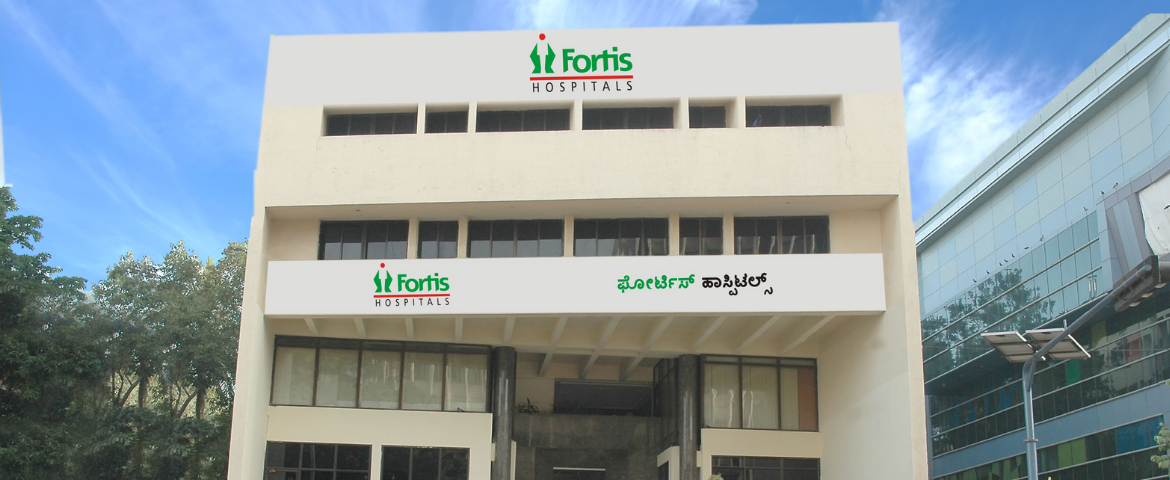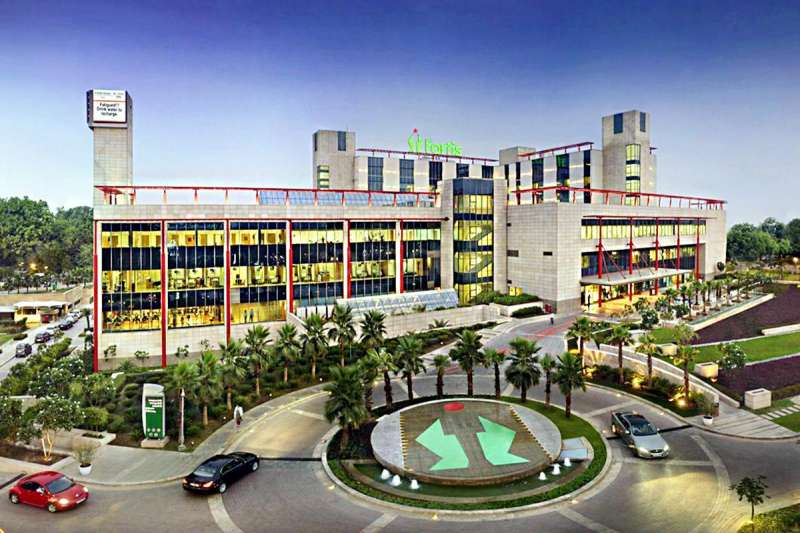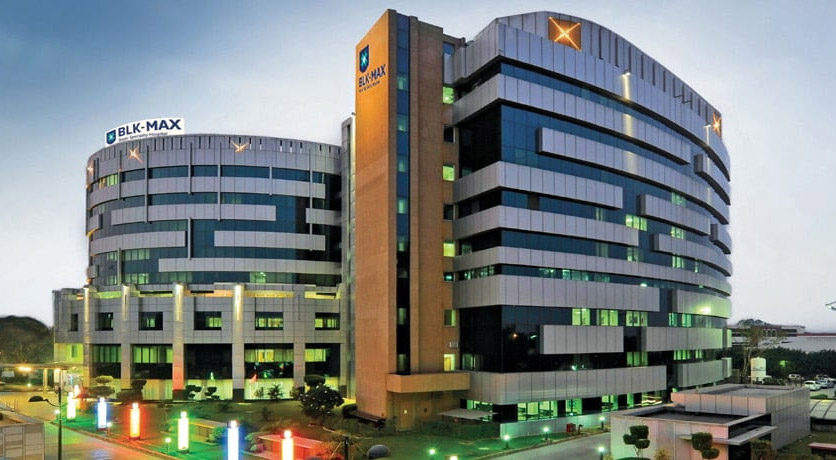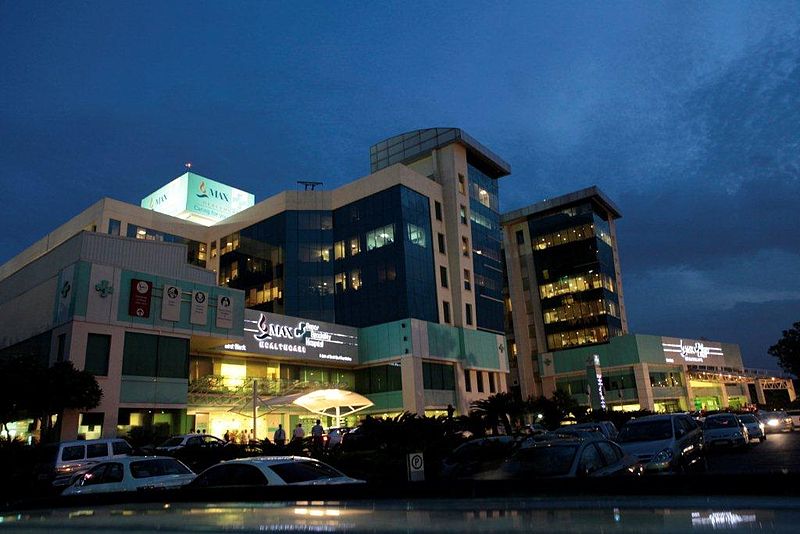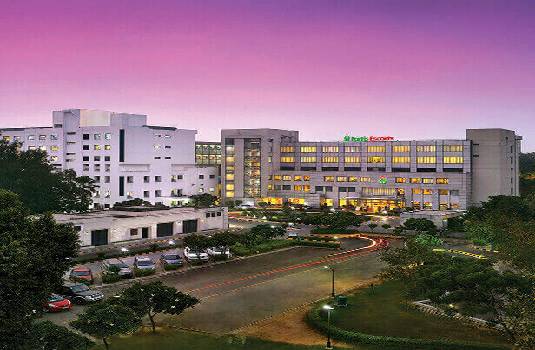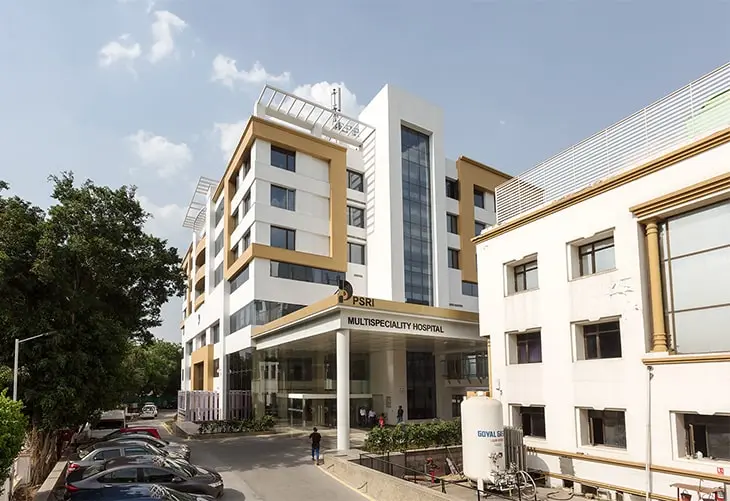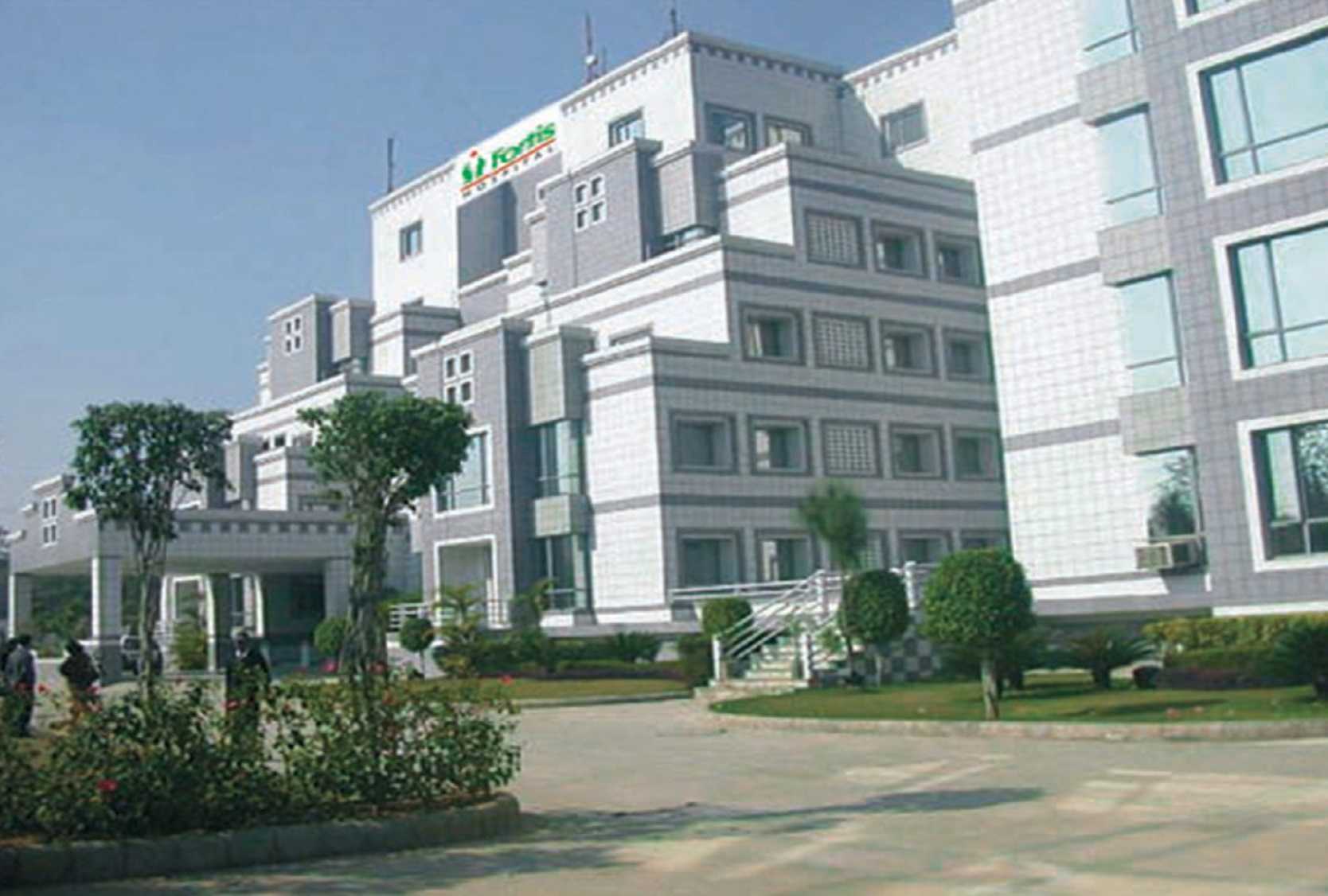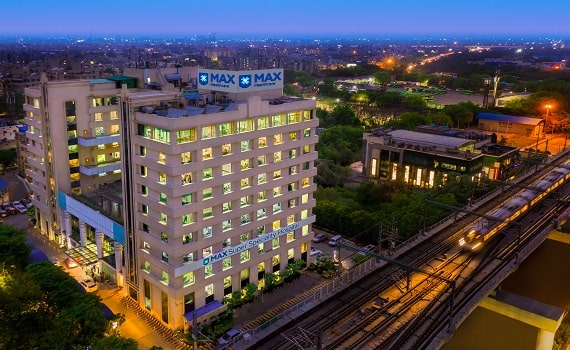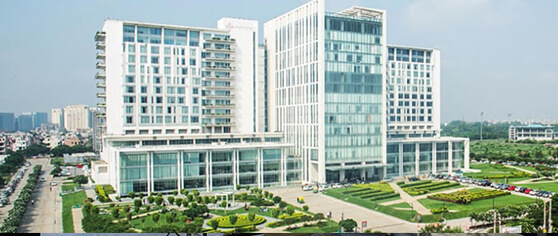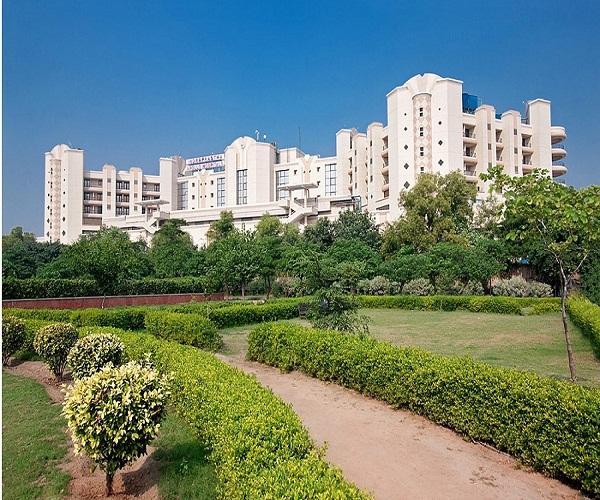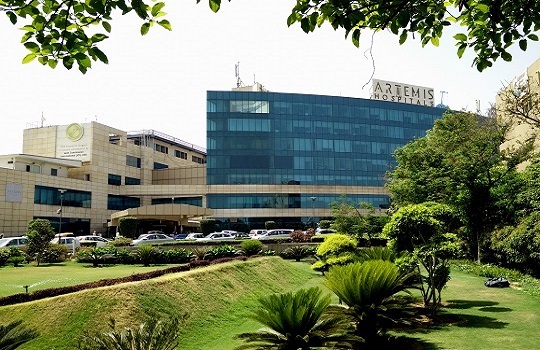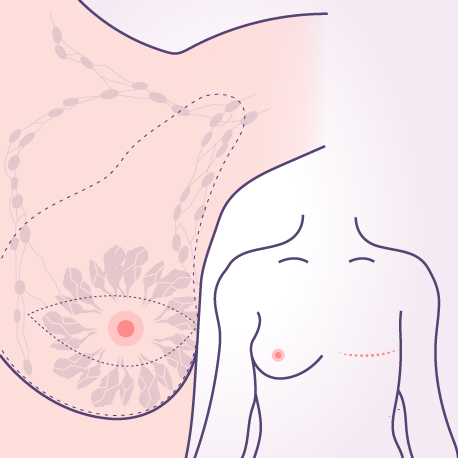Modified Radical Mastectomy cost in India
The cost of Modified Radical Mastectomy in India ranges from USD 4100 to USD 7000
Modified Radical Mastectomy:
The breast, most or all of the lymph nodes beneath the arm, and the lining over the chest muscles are all removed during a modified radical mastectomy for breast cancer. The surgeon may also remove a portion of the chest wall muscles. The whole breast is removed in both radical and modified radical mastectomy. The surgeon removes several underarm lymph nodes during a modified radical mastectomy. The main distinction is that a radical mastectomy involves the removal of all underarm lymph nodes as well as the entire chest muscle.
Invasive breast cancer that has gone outside the breast tissue is treated with modified radical mastectomies. Any type of breast cancer that affects the axillary lymph nodes can be treated with this operation.
Modified Radical Mastectomy:
The breast, most or all of the lymph nodes beneath the arm, and the lining over the chest muscles are all removed during a modified radical mastectomy for breast cancer. The surgeon may also remove a portion of the chest wall muscles.
The whole breast is removed in both radical and modified radical mastectomy. The surgeon removes several underarm lymph nodes during a modified radical mastectomy. The main distinction is that a radical mastectomy involves the removal of all underarm lymph nodes as well as the entire chest muscle.
Invasive breast cancer that has gone outside the breast tissue is treated with modified radical mastectomies. Any type of breast cancer that affects the axillary lymph nodes can be treated with this operation.
Disease Overview:
Breast Cancer:
Breast cancer is a kind of cancer that develops in the breast cells. It may strike both men and women, although it affects women significantly more frequently.
Significant funding for breast cancer research and awareness has aided in the advancement of breast cancer detection and therapy. Early identification, a novel customised approach to therapy, and a better knowledge of the illness have all contributed to an improvement in breast cancer survival rates and a steady decline in the number of fatalities linked with the disease.
Types of Breast cancer can be
- Angiosarcoma
- Inflammatory breast cancer
- Invasive lobular carcinoma
- Ductal carcinoma in situ (DCIS)
- Lobular carcinoma in situ (LCIS)
- Paget's disease of the breast
- Recurrent breast cancer
- Male breast cancer
Disease Signs and Symptoms:
The following are some of the signs and symptoms of breast cancer:
- A lump or enlargement in the breast that doesn't feel like the rest of the breast
- A breast's size, shape, or appearance changes.
- Dimpling, for example, is a change in the skin around the breast.
- A nipple that has recently inverted
- The pigmented region of skin surrounding the nipple (areola) or breast skin peels, scales, crusts, or flakes.
- The skin above your breasts is reddened or pitted, like the skin of an orange.
Disease Cuases:
Breast cancer develops when some breast cells begin to grow abnormally, according to doctors. These cells proliferate at a faster rate than healthy cells and continue to grow, generating a lump or mass. Cells in your breast may spread (metastasize) to your lymph nodes or other places of your body.
- Cells in the milk-producing ducts are the most common source of breast cancer (invasive ductal carcinoma). Breast cancer can start in the glandular tissue called lobules, or in other cells or tissue within the breast (invasive lobular carcinoma).
- Hormonal, lifestyle, and environmental variables have all been linked to an increased risk of breast cancer, according to research. However, it's unclear why some people with no risk factors get cancer and others with risk factors never do.
- Breast cancer that is passed down down the generations
- Doctors think that 5 to 10% of breast tumours are caused by gene abnormalities handed down through the generations.
- A number of inherited mutant genes have been found that potentially raise the risk of breast cancer. Breast cancer genes 1 (BRCA1) and 2 (BRCA2) are the most well-known, both of which considerably increase the risk of breast and ovarian cancer.
- If you have a significant family history of breast cancer or other malignancies, your doctor may offer a blood test to discover particular BRCA or other gene abnormalities that are handed down via your family.
Factors that are at risk
A breast cancer risk factor is anything that increases your chances of developing breast cancer. However, having one or more breast cancer risk factors does not guarantee that you will get breast cancer. Many women with breast cancer have no recognised risk factors other than the fact that they are women.
The following factors have been linked to an increased risk of breast cancer:
- Being a woman. Breast cancer is far more common in women than it is in males.
- Getting older. As you become older, your chances of developing breast cancer rise.
- You have a higher chance of breast cancer if you've had a breast biopsy that revealed lobular carcinoma in situ (LCIS) or atypical hyperplasia of the breast.
- If you've had breast cancer in one of your breasts, you're more likely to have cancer in the other.
- Your risk of breast cancer is enhanced if your mother, sister, or daughter was diagnosed with breast cancer at a young age. Despite this, the vast majority of breast cancer patients have no family history of the illness.
- Exposure to radiation. Your risk of breast cancer is higher if you had radiation treatments to your chest as a kid or young adult.
- Obesity. Obesity raises your chances of developing breast cancer.
- You should start your period at a younger age. Breast cancer is more likely if you start your period before the age of 12.
- Menopause begins at a later age. You're more likely to acquire breast cancer if you started menopause later in life.
- Having your first kid while you're older. Breast cancer risk is higher in women who have their first child after the age of 30.
- Breast cancer is more common in women who have never been pregnant than in women who have had one or more pregnancies.
- Hormone treatment for postmenopausal women. Breast cancer is more likely in women who take hormone treatment drugs that combine oestrogen and progesterone to treat the signs and symptoms of menopause. When women quit using these drugs, their risk of breast cancer falls.
Disease Diagnosis:
Breast cancer is diagnosed using the following tests and procedures:
Examine your breasts. Your doctor will feel for lumps or other abnormalities in both of your breasts and the lymph nodes in your armpit.
Mammogram. A mammogram is a type of X-ray that is used to examine the breast. Breast cancer screening is often done via mammograms. If a screening mammography reveals an anomaly, your doctor may prescribe a diagnostic mammogram to investigate further.
Ultrasound of the breasts. Ultrasound imaging creates pictures of structures deep within the body using sound waves. A new breast lump can be diagnosed by ultrasound to see if it's a solid mass or a fluid-filled cyst.
Taking a biopsy of a sample of breast cells (biopsy). Breast cancer can only be diagnosed definitively by a biopsy. A biopsy is a procedure in which your doctor extracts a core of tissue from a questionable location using a specialised needle instrument guided by an X-ray or another imaging test. A tiny metal marker is frequently left at the spot within your breast so that subsequent imaging tests may easily identify the region.
Biopsy samples are submitted to a facility for testing, and specialists evaluate if the cells are malignant. A biopsy sample is also examined to establish the type of cells involved in breast cancer, the tumour's aggressiveness (grade), and whether the cancer cells have hormone receptors or other receptors that might affect your treatment options.
Magnetic resonance imaging of the breast (MRI). An MRI machine creates images of the inside of your breast using a magnet and radio waves. You will be given a dye injection before to your breast MRI. An MRI does not employ radiation to produce pictures, unlike other forms of imaging procedures.
Depending on your condition, other tests and treatments may be utilised.
Disease Treatment:
Your doctor will assess your treatment choices for breast cancer depending on the kind of cancer, its stage and grade, size, and if the cancer cells are hormone sensitive. Your doctor will also take into account your general health and personal preferences.
The majority of women with breast cancer undergo surgery, and many of them also receive extra treatment thereafter, such as chemotherapy, hormone therapy, or radiation. Chemotherapy may also be given before to surgery in some cases.
There are several therapy choices for breast cancer, and you may feel overwhelmed as you make difficult treatment decisions. Consider consulting a breast expert at a breast centre or clinic for a second opinion.
Surgical treatment for breast cancer
The following operations are used to treat breast cancer:
Getting rid of the breast cancer (lumpectomy). The surgeon eliminates the tumour plus a short margin of good tissue surrounding it during a lumpectomy, also known as breast-conserving surgery or broad local excision.
Taking off the whole breast (mastectomy). A mastectomy is a procedure in which all of your breast tissue is removed. The lobules, ducts, fatty tissue, and some skin, including the nipple and areola, are all removed during most mastectomy surgeries (total or simple mastectomy).
A small number of lymph nodes are removed (sentinel node biopsy). Your surgeon will explain the function of removing the lymph nodes that are the first to get cancer treatment with you in order to assess whether cancer has spread to your lymph nodes.
Several lymph nodes are removed (axillary lymph node dissection). If cancer is discovered in the sentinel lymph nodes, your surgeon will consider whether more lymph nodes in your armpit should be removed.
Both breasts are removed. If they have a very high risk of cancer in the other breast due to a genetic predisposition or a strong family history, some women with cancer in one breast may opt to have their second (healthy) breast removed (contralateral preventive mastectomy).
Breast cancer surgery complications are determined by the procedures you select. Pain, bleeding, infection, and arm swelling are all possible side effects after breast cancer surgery (lymphedema).
Following surgery, you may elect to have your breasts reconstructed. Consult your surgeon about your alternatives and preferences.
Before you have your breast cancer surgery, see if you can get a referral to a plastic surgeon. Reconstruction with a breast implant (silicone or water) or reconstruction with your own tissue are two choices. These procedures can be done at the same time as your mastectomy or at a later period.
Radiation therapy
Radiation treatment employs high-powered beams of energy such as X-rays and protons. Radiation therapy is usually performed with the use of a huge equipment that shoots energy beams at your body (external beam radiation). However, you may also expose yourself to radiation by putting radioactive material inside your body (brachytherapy).
Following a lumpectomy, external beam radiation of the whole breast is often performed. If you have a low risk of cancer recurrence following a lumpectomy, breast brachytherapy may be a possibility.
Chemotherapy
Chemotherapy is a type of treatment that employs medications to kill fast-growing cells, such as cancer cells. If your cancer has a high risk of returning or spreading to another part of your body, your doctor may suggest chemotherapy after surgery to reduce the chances of the cancer returning or spreading to another part of your body.
Chemotherapy is occasionally administered to women with bigger breast tumours before surgery. The objective is to reduce a tumour to the point where it can be surgically removed. It is also utilised in the treatment of women whose cancer has progressed to other sections of their bodies. Chemotherapy may be used to help manage the cancer and alleviate any symptoms it causes.
The adverse effects of chemotherapy are determined by the medications you are given. Hair loss, nausea, vomiting, exhaustion, and an increased risk of infection are all common adverse effects. Premature menopause, infertility (if premenopausal), heart and kidney damage, nerve damage, and, very infrequently, blood cell cancer are all possible adverse effects.
Hormone therapy
Hormone treatment — or, maybe more accurately, hormone-blocking therapy — is used to treat hormone-sensitive breast cancers. Estrogen receptor positive (ER positive) and progesterone receptor positive (PR positive) malignancies are the terms used by doctors to describe these tumours.
Hormone therapy can be given before or after surgery or other therapies to reduce the risk of cancer recurrence. Hormone treatment may reduce and control cancer that has already spread.
Hormone therapy can comprise the following treatments:
- Hormone-blocking drugs are drugs that prevent hormones from binding to cancer cells (selective oestrogen receptor modulators)
- After menopause, medications that prevent the body from producing oestrogen are prescribed (aromatase inhibitors)
- Hormone production in the ovaries can be stopped by surgery or medicines.
- Hot flashes, nocturnal sweats, and vaginal dryness are all possible adverse effects of hormone therapy, depending on your exact treatment. Bone thinning and blood clots are two more significant adverse effects.
Targeted Drug treatment
Drug treatments that target particular defects within cancer cells are known as targeted therapies. Several targeted treatment medications, for example, target a protein called human epidermal growth factor receptor 2 that is overproduced by certain breast cancer cells (HER2). The protein aids the growth and survival of breast cancer cells. The medications can harm cancer cells while protecting healthy cells by targeting cells that produce too much HER2.
Drugs that target various defects inside cancer cells are offered as targeted treatment. Targeted treatment is also a hot topic in cancer research.
Immunotherapy
Immunotherapy is a type of cancer treatment that makes use of your immune system. Because cancer cells create proteins that blind immune system cells, your body's disease-fighting immune system may not attack your cancer. Immunotherapy works by interfering with the immune system's natural processes.
If you have triple-negative breast cancer, which implies the cancer cells lack oestrogen, progesterone, or HER2 receptors, immunotherapy may be an option. Immunotherapy is used in combination with chemotherapy to treat triple-negative breast cancer that has progressed to other regions of the body.
Palliative (supportive) care
Palliative care is a type of medical treatment that focuses on relieving pain and other symptoms associated with a severe disease. Palliative care professionals collaborate with you, your family, and your other doctors to add an extra layer of support to your continuing treatment. Palliative care can be used in conjunction with other harsh therapies such surgery, chemotherapy, or radiation.
Country wise cost comparison for Modified Radical Mastectomy:
| Country | Cost |
|---|---|
| India | $3780 |
Treatment and Cost
20
Total Days
In Country
- 2 Day in Hospital
- 2 No. Travelers
- 18 Days Outside Hospital
Treatment cost starts from
$4200
Popular Hospital & Clinic
Featured Hospital
101 Hospitals
Types of Modified Radical Mastectomy in Fortis Memorial Research Institute and its associated cost
| Treatment Option | Approximate Cost Range (USD) |
|---|---|
| No Treatment option added | |
- Address: Sector - 44, Opp. HUDA City Center,Gurgaon, Haryana - 122002, India
- Facilities related to Fortis Memorial Research Institute: Private Rooms, Translator, Nursery / Nanny Services, Airport Pick up, Personal Assistance / Concierge, Free Wifi, Local Tourism Options, International Cuisine, Phone in Room, Private Driver / Limousine Services, Post operative followup, Mobility Accessible Rooms, Online Doctor Consultation, Air Ambulance, Religious Facilities, Rehabilitation, Cafe, TV in room, Car Hire, Health Insurance Coordination,
50
DOCTORS IN 35 SPECIALITIES
20+
FACILITIES & AMENITIES
Types of Modified Radical Mastectomy in BLK-Max Super Speciality Hospital and its associated cost
| Treatment Option | Approximate Cost Range (USD) |
|---|---|
| No Treatment option added | |
- Address: Pusa Road, New Delhi-110005
- Facilities related to BLK-Max Super Speciality Hospital: Private Rooms, Translator, Nursery / Nanny Services, Personal Assistance / Concierge, Free Wifi, International Cuisine, Phone in Room, Private Driver / Limousine Services, Post operative follow-up, Mobility Accessible Rooms, Rehabilitation, Cafe, TV in room, Car Hire, Health Insurance Coordination
17
DOCTORS IN 33 SPECIALITIES
20+
FACILITIES & AMENITIES
Types of Modified Radical Mastectomy in Max Super Speciality Hospital and its associated cost
| Treatment Option | Approximate Cost Range (USD) |
|---|---|
| No Treatment option added | |
- Address: Max Super Speciality Hospital No. 1, 2, Press Enclave Road, Mandir Marg, Saket Institutional Area, Saket, New Delhi, Delhi, 110017, India
- Facilities related to Max Super Speciality Hospital:
53
DOCTORS IN 34 SPECIALITIES
20+
FACILITIES & AMENITIES
Types of Modified Radical Mastectomy in Fortis Escorts Heart Institute and its associated cost
| Treatment Option | Approximate Cost Range (USD) |
|---|---|
| No Treatment option added | |
- Address: Okhla Road,New Delhi - 110 025 (INDIA)
- Facilities related to Fortis Escorts Heart Institute: Private Rooms, Translator, Nursery / Nanny Services, Personal Assistance / Concierge, Free Wifi, International Cuisine, Phone in Room, Private Driver / Limousine Services, Post operative follow-up, Mobility Accessible Rooms, Rehabilitation, Cafe, TV in room, Car Hire, Health Insurance Coordination
19
DOCTORS IN 33 SPECIALITIES
20+
FACILITIES & AMENITIES
Types of Modified Radical Mastectomy in PSRI Hospital and its associated cost
| Treatment Option | Approximate Cost Range (USD) |
|---|---|
| No Treatment option added | |
- Address: Press Enclave Marg, J Pocket, Phase II, Sheikh Sarai, New Delhi, Delhi 110017
- Facilities related to PSRI Hospital: Private Rooms, Translator, Nursery / Nanny Services, Personal Assistance / Concierge, Free Wifi, International Cuisine, Phone in Room, Private Driver / Limousine Services, Post operative follow-up, Mobility Accessible Rooms, Rehabilitation, Cafe, TV in room, Car Hire, Health Insurance Coordination
8
DOCTORS IN 33 SPECIALITIES
20+
FACILITIES & AMENITIES
Types of Modified Radical Mastectomy in Fortis Flt. Lt. Rajan Dhall Hospital, Vasant Kunj, Delhi and its associated cost
| Treatment Option | Approximate Cost Range (USD) |
|---|---|
| No Treatment option added | |
- Address: Fortis Flt. Lt. Rajan Dhall Hospital, Aruna Asaf Ali Marg, Pocket 1, Sector B, Vasant Kunj, New Delhi, Delhi 110070
- Facilities related to Fortis Flt. Lt. Rajan Dhall Hospital, Vasant Kunj, Delhi: Private Rooms, Translator, Nursery / Nanny Services, Personal Assistance / Concierge, Free Wifi, International Cuisine, Phone in Room, Private Driver / Limousine Services, Post operative follow-up, Mobility Accessible Rooms, Rehabilitation, Cafe, TV in room, Car Hire, Health Insurance Coordination
46
DOCTORS IN 34 SPECIALITIES
20+
FACILITIES & AMENITIES
Types of Modified Radical Mastectomy in MAX Super Speciality hospital, Patpadganj Delhi and its associated cost
| Treatment Option | Approximate Cost Range (USD) |
|---|---|
| No Treatment option added | |
- Address: 108A, Indraprasth Extension, Patpadganj, New Delhi- 110092, India
- Facilities related to MAX Super Speciality hospital, Patpadganj Delhi: Private Rooms, Translator, Nursery / Nanny Services, Personal Assistance / Concierge, Free Wifi, International Cuisine, Phone in Room, Private Driver / Limousine Services, Post operative follow-up, Mobility Accessible Rooms, Rehabilitation, Cafe, TV in room, Car Hire, Health Insurance Coordination
52
DOCTORS IN 33 SPECIALITIES
20+
FACILITIES & AMENITIES
Types of Modified Radical Mastectomy in Medanta-The Medicity, Gurgaon and its associated cost
| Treatment Option | Approximate Cost Range (USD) |
|---|---|
| No Treatment option added | |
- Address: CH Baktawar Singh Road, Sector 38, Gurugram, Haryana 122001
- Facilities related to Medanta-The Medicity, Gurgaon: TV in room Private rooms, Free Wifi, Phone in Room, Mobility accessible rooms, Family accommodation, Laundry, Welcome Safe in the room, Nursery / Nanny services. Dry cleaning, Personal assistance / Concierge Religious facilities, Fitness Spa and wellness Café, Business Centre, Shop, Dedicated smoking areas, Beauty Salon, Special offer for group stays, Parking available, Health insurance coordination, Medical travel insurance, Foreign currency exchange, ATM, Credit Card, Debit Card, Net banking, Diet on Request, Restaurant, International Cuisine, Treatment Related Medical records transfer, Online doctor consultation, Rehabilitation, Pharmacy, Document legalization, Post operative follow-up, Language Interpreter, Translation services, Transportation, Airport pickup, Local tourism options, Local transportation booking, Visa / Travel office, Car Hire, Private driver / Limousine services, Air ambulance
52
DOCTORS IN 33 SPECIALITIES
20+
FACILITIES & AMENITIES
Types of Modified Radical Mastectomy in Indraprastha Apollo Hospitals, New Delhi and its associated cost
| Treatment Option | Approximate Cost Range (USD) |
|---|---|
| No Treatment option added | |
- Address: Mathura Rd, Jasola Vihar, New Delhi, Delhi 110076
- Facilities related to Indraprastha Apollo Hospitals, New Delhi: Private Rooms, Translator, Nursery / Nanny Services, Personal Assistance / Concierge, Free Wifi, International Cuisine, Phone in Room, Private Driver / Limousine Services, Post operative follow-up, Mobility Accessible Rooms, Rehabilitation, Cafe, TV in room, Car Hire, Health Insurance Coordination
37
DOCTORS IN 33 SPECIALITIES
20+
FACILITIES & AMENITIES
Types of Modified Radical Mastectomy in Artemis Hospitals and its associated cost
| Treatment Option | Approximate Cost Range (USD) |
|---|---|
| No Treatment option added | |
- Address: Sector 51, Gurugram 122001, Haryana, India
- Facilities related to Artemis Hospitals: Private Rooms, Translator, Nursery / Nanny Services, Personal Assistance / Concierge, Free Wifi, International Cuisine, Phone in Room, Private Driver / Limousine Services, Post operative follow-up, Mobility Accessible Rooms, Rehabilitation, Cafe, TV in room, Car Hire, Health Insurance Coordination
12
DOCTORS IN 11 SPECIALITIES
20+
FACILITIES & AMENITIES
Related Packages
More Related Information
Some of the top rated doctors are:
- Saudi Arabia
Some of the top rated hospitals are:
- India
- Fortis Memorial Research Institute
- BLK-Max Super Speciality Hospital
- Medanta-The Medicity, Gurgaon
- Indraprastha Apollo Hospitals, New Delhi
- Artemis Hospitals
- Manipal Hospitals
- Nanavati Max Super Speciality Hospital, Mumbai
- Kokilaben Dhirubhai Ambani Hospital, Mumbai
- KIMS Hospital Kondapur, Hyderabad
- MIOT International, Chennai
- MGM Healthcare, Chennai
- Saudi Arabia

